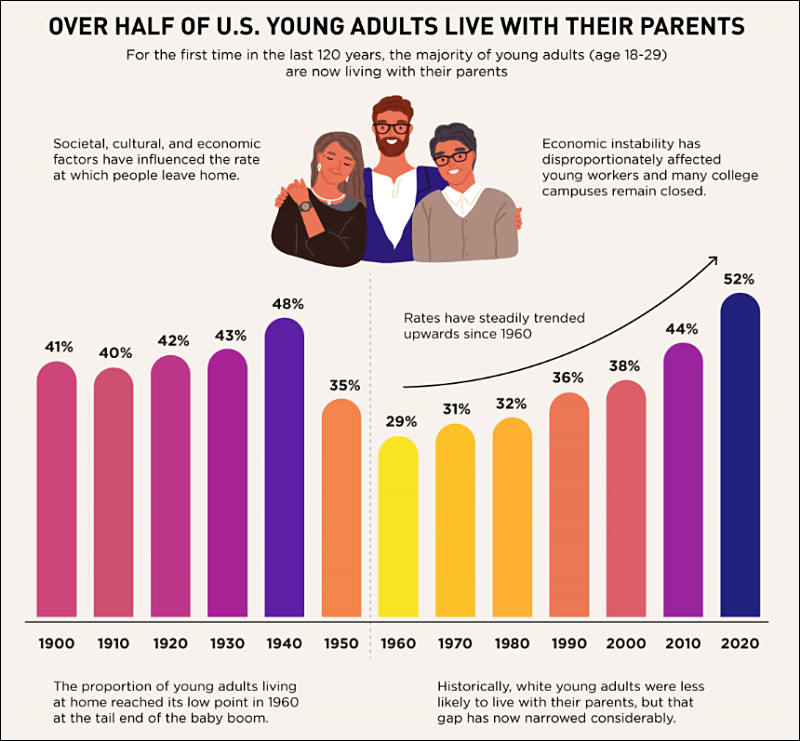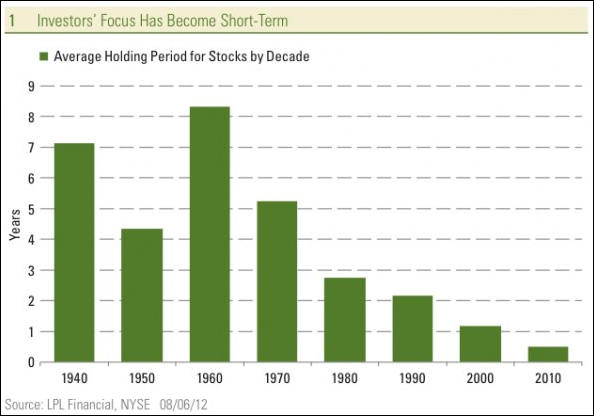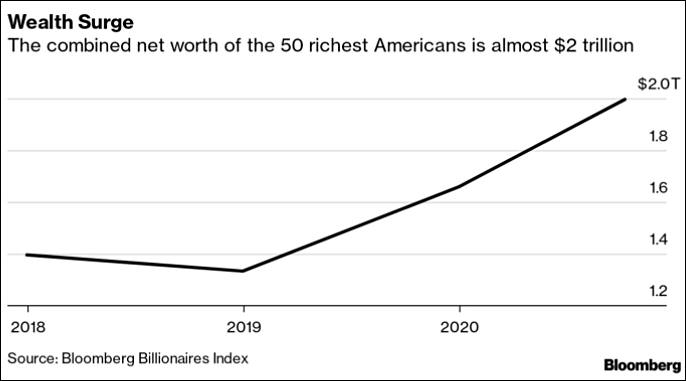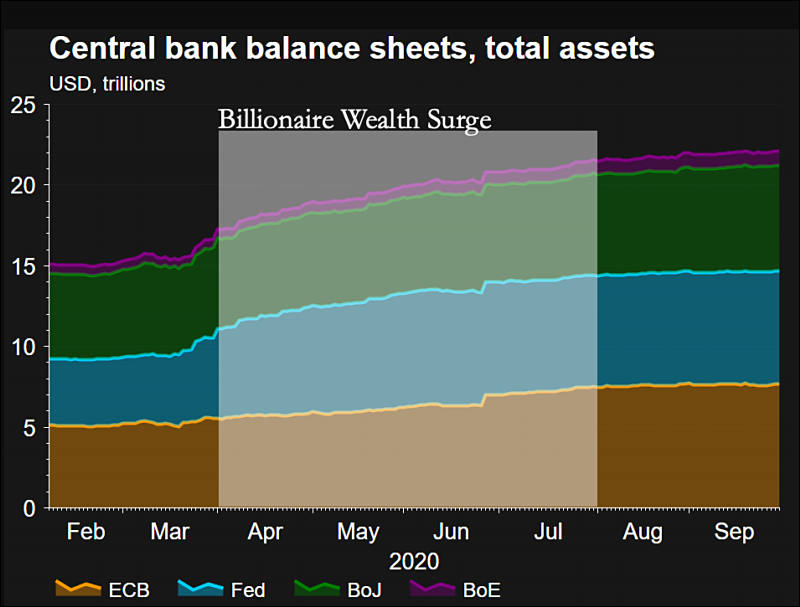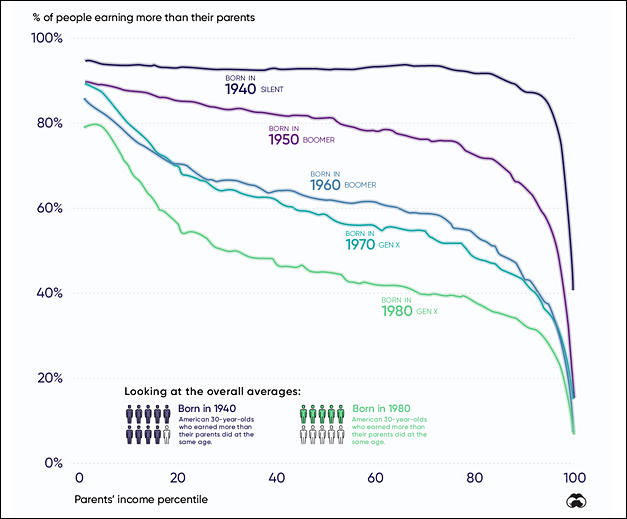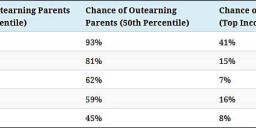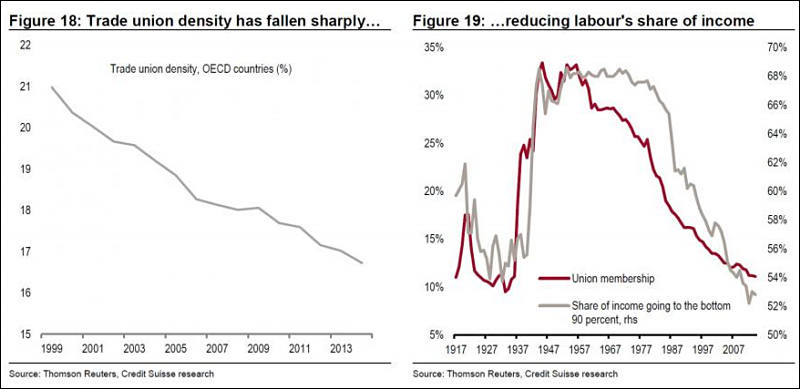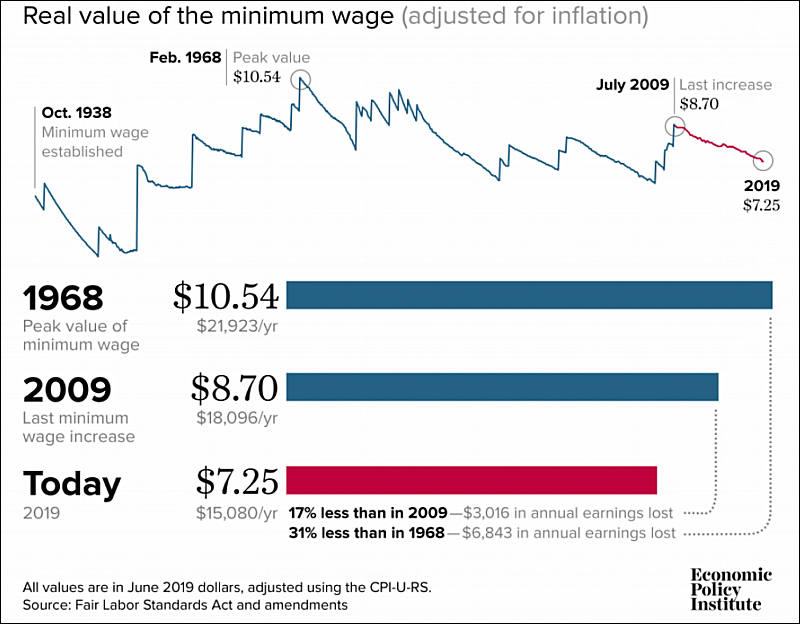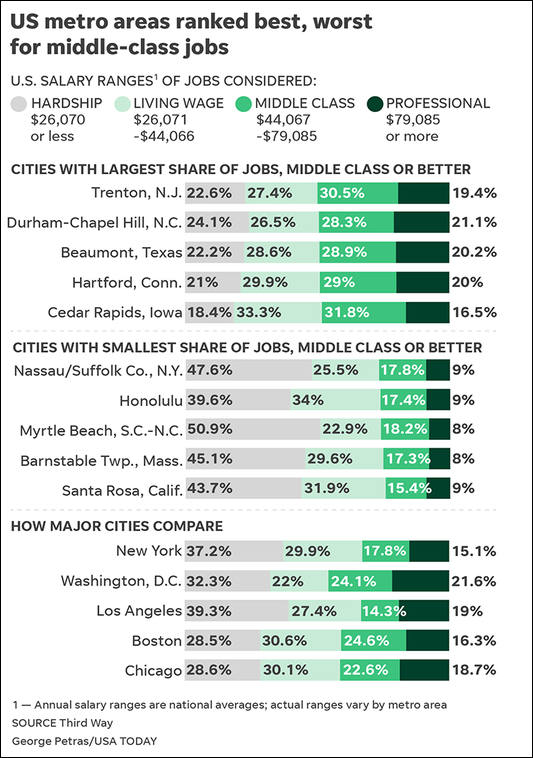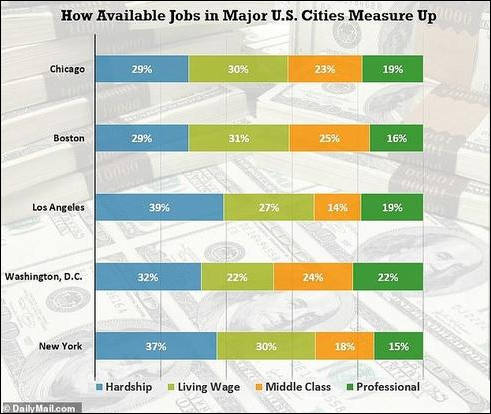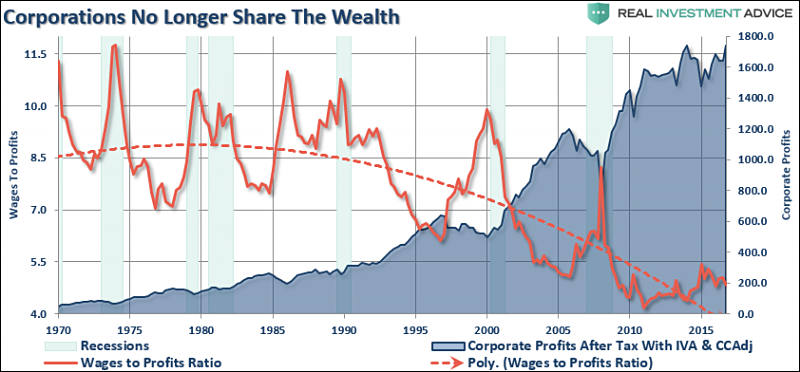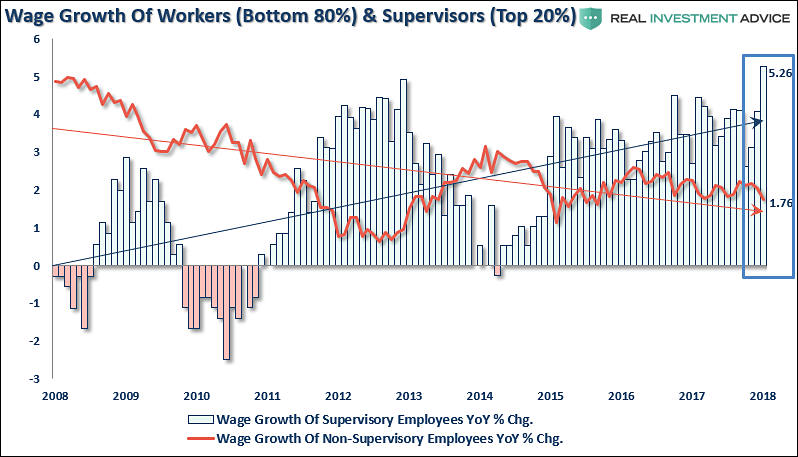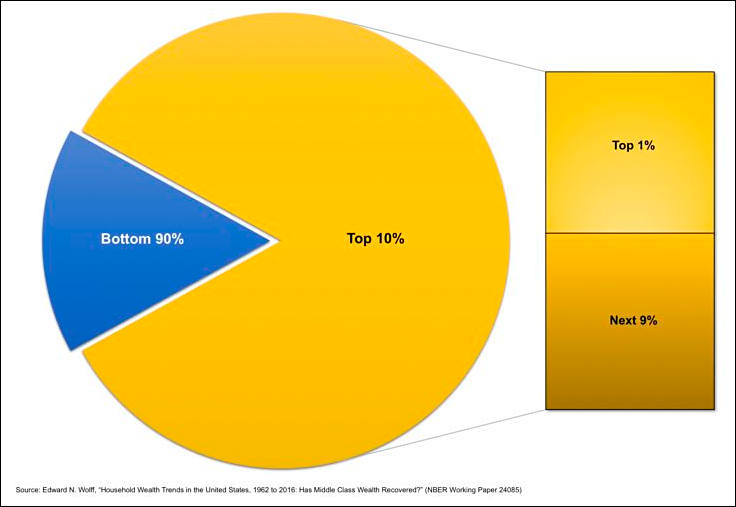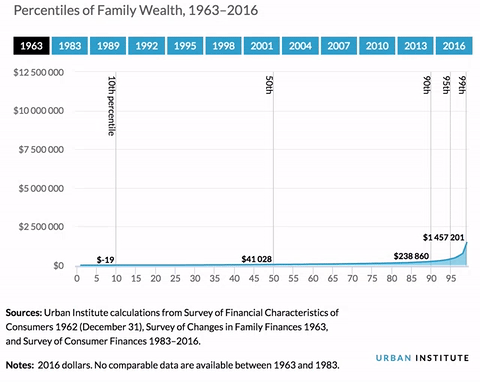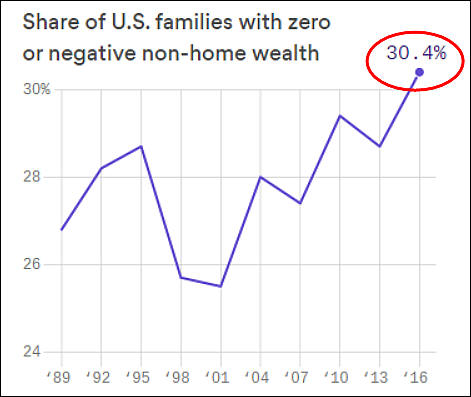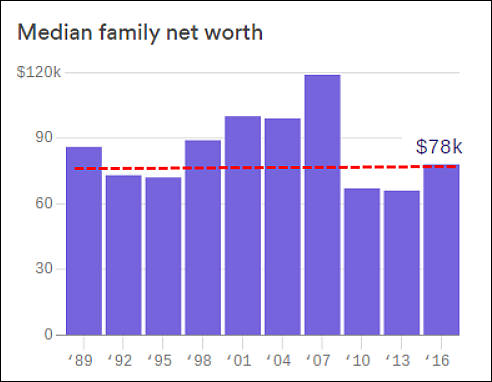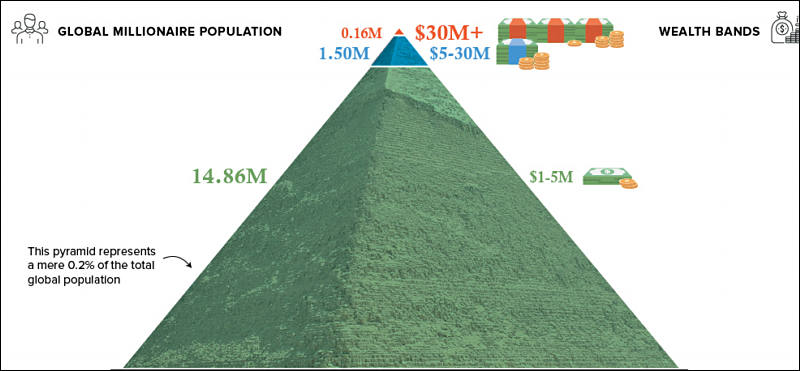
It allows to keep PV going, with more focus towards AI, but keeping be one of the few truly independent places.
-
Issues with social mobility
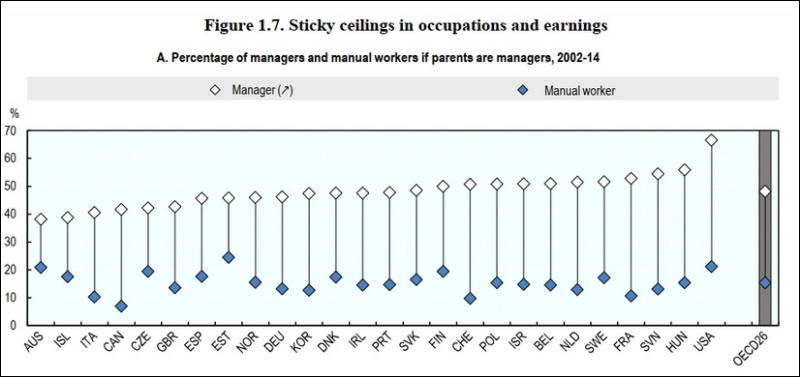
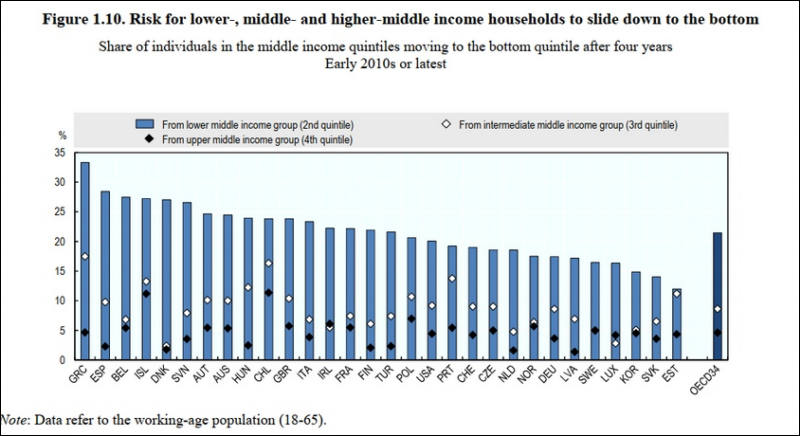
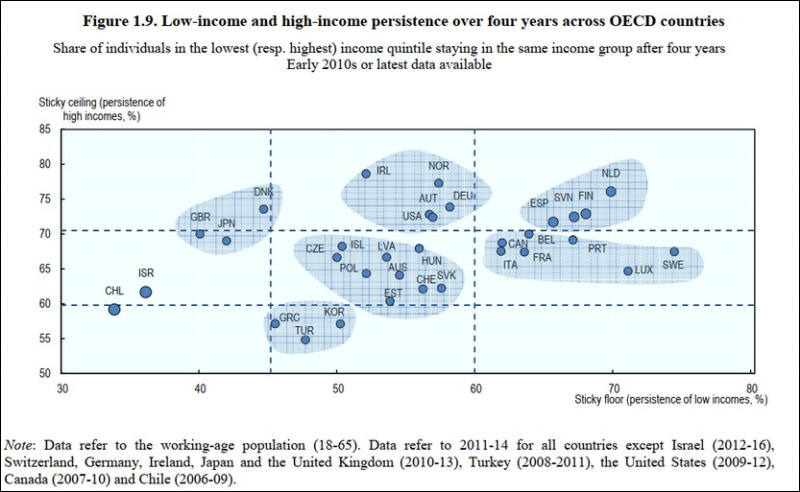
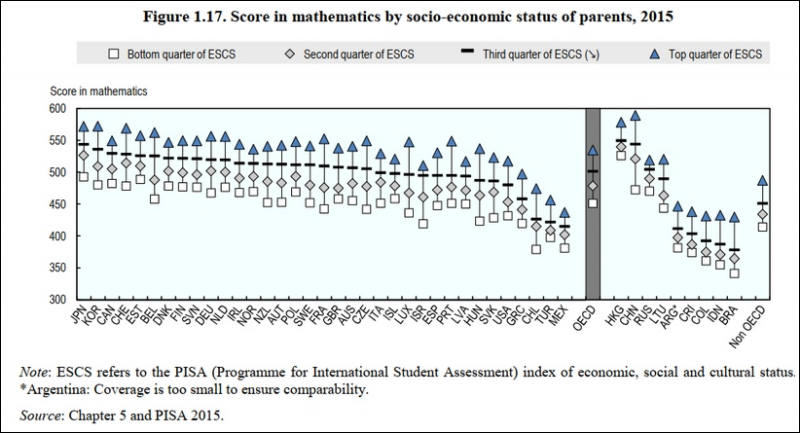

 sa15589.jpg800 x 377 - 42K
sa15589.jpg800 x 377 - 42K
 sa15590.jpg800 x 436 - 62K
sa15590.jpg800 x 436 - 62K
 sa15591.jpg800 x 492 - 64K
sa15591.jpg800 x 492 - 64K
 sa15592.jpg800 x 433 - 57K
sa15592.jpg800 x 433 - 57K -
According to the latest Fed data, the top 1% of Americans have a combined net worth of $34.2 trillion (or 30.4% of all household wealth in the U.S.), while the bottom 50% of the population holds just $2.1 trillion combined (or 1.9% of all wealth).
-
On stock market as special income redistribution machine
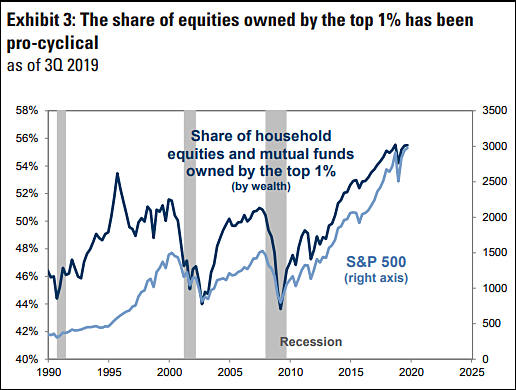
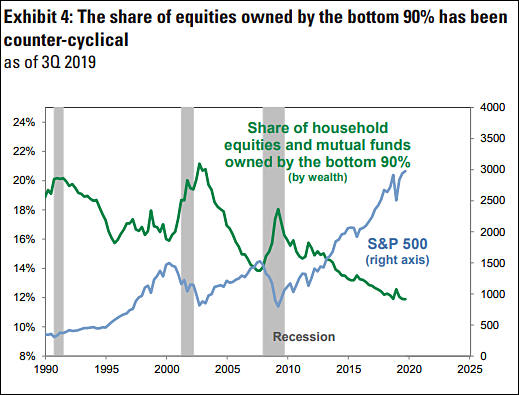

 sa14662.jpg516 x 390 - 46K
sa14662.jpg516 x 390 - 46K
 sa14663.jpg519 x 395 - 47K
sa14663.jpg519 x 395 - 47K -
The middle class is imploding in society after society. Even the vaunted Canadian and European middle classes, better protected by generous social contracts, are beginning to decline. The working class is fast becoming something like a caste of digital serfs, roaming from on demand gig to on demand gig, scavenging the landfill of prosperity for today’s ride, task, job, detritus.
-
Only 28% of Americans are considered “financially healthy,” according to a CFSI survey of more than 5,000 Americans. “Financial health enables family stability, education, and upward mobility, not just for individuals today but across future generations,” the CFSI says. “Many are dealing with an unhealthy amount of debt, irregular income, and sporadic savings habits.”
Meanwhile, 17% of Americans are “financially vulnerable,” meaning they struggle with nearly all financial aspects of their lives, and 55% are “financially coping,” meaning they struggle with some but not all aspects of their financial lives. The recent volatility in the Dow Jones Industrial and S&P 500 has not helped Americans feel secure, experts say.
-
Even stock market is not for middle class now
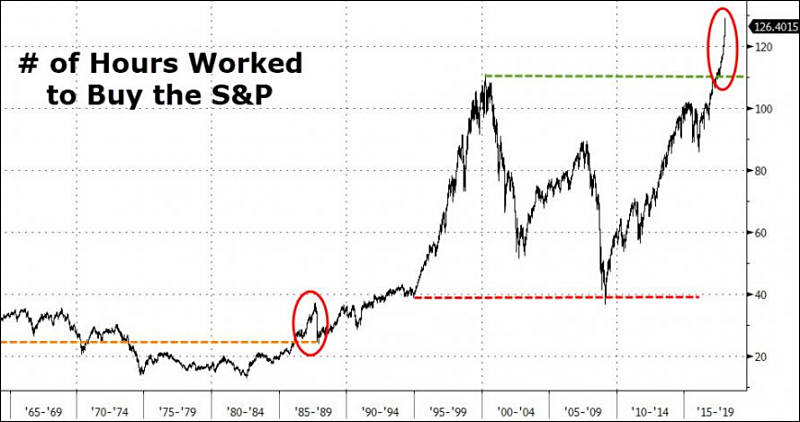

 sa1749.jpg800 x 422 - 49K
sa1749.jpg800 x 422 - 49K -
Retirement and medical care benefits were available to 70 percent of civilian workers in March 2017. 94 percent of union workers had access to employer-sponsored retirement and medical care benefits. For nonunion workers, 66 percent had access to retirement benefits and 67 percent to medical care benefits.
For civilian workers, the shares employers paid of medical care premium costs were 80 percent for single coverage and 68 percent for family coverage. The employee and employer shares of premiums also varied by bargaining status. Employers assumed 87 percent of the premium for single coverage for union workers and 79 percent for nonunion workers. For family coverage, union workers had 80 percent of the premium paid for by employers, whereas nonunion workers had 65 percent of the premium paid by employers.
Unions are good for your health.
-
Annual Changes and 2003 Total Average Time Spent on Select Activities for the US Working Population from 2003 to 2012
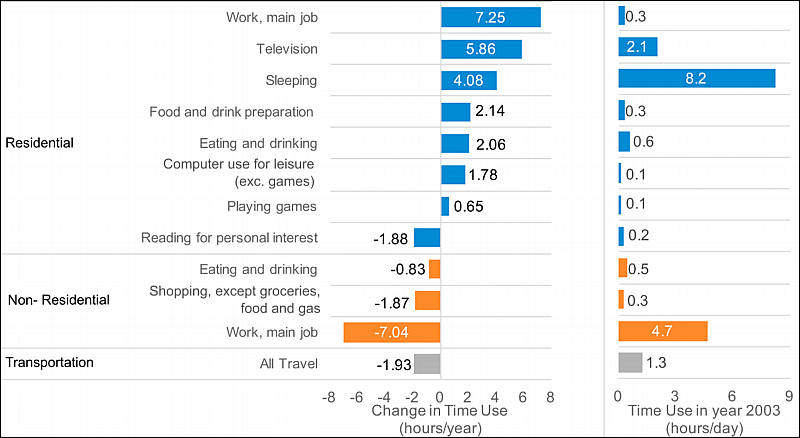

 sa1528.jpg800 x 438 - 52K
sa1528.jpg800 x 438 - 52K -
Oxfam surveyed over 70,000 people in 10 countries, representing one-quarter of the world’s population:
- Over three-quarters of people either agree or strongly agree that the gap between rich and poor in their country is too large – this ranges from 58% in the Netherlands to 92% in Nigeria.
- Nearly two-thirds of the respondents in the 10 countries think the gap between the rich and the poor needs to be addressed urgently or very urgently.
- 60% of total respondents agree or strongly agree it is the government’s responsibility to reduce the gap between the rich and the poor. In South Africa, 69% of respondents agree or strongly agree.
- 75% of the respondents prefer lower levels of income inequality than those that exist in their country. In fact, more than half of the people surveyed wanted lower levels of inequality in their country than currently exist in any country in the world.
Last year saw the biggest increase in the number of billionaires in history, one more every two days. There are now 2,043 dollar billionaires worldwide. Nine out of 10 are men.
- In 12 months, the wealth of this elite group has increased by $762bn. This is enough to end extreme poverty seven times over.
- In the period between 2006 and 2015, ordinary workers saw their incomes rise by an average of just 2% a year,20 while billionaire wealth rose by nearly 13% a year – almost six times faster.
- 82% of all growth in global wealth in the last year went to the top 1%, while the bottom half of humanity saw no increase at all.
- While billionaires in one year saw their fortunes grow by $762bn, women provide $10 trillion in unpaid care annually to support the global economy.
- New data from Credit Suisse means 42 people now own the same wealth as the bottom 3.7 billion people, and that last year’s figure has been revised from eight to 61 people owning the same as the bottom 50%.
- The richest 1% continue to own more wealth than the whole of the rest of humanity.
- In Nigeria, the richest man earns enough interest on his wealth in one year to lift two million people out of extreme poverty. Despite almost a decade of robust economic growth in Nigeria, poverty has increased over the same period.
- In Indonesia,27 the four richest men own more wealth than the bottom 100 million people.
- The three richest people in the US own the same wealth as the bottom half of the US population (roughly 160 million people).28
-
Giving birth is expensive thing
It’s nearly impossible to put a price tag on giving birth in America, since costs vary dramatically by state and hospital. But one 2013 study by the advocacy group Childbirth Connection found that, on average, hospitals charged $32,093 for an uncomplicated vaginal birth and newborn care, and $51,125 for a standard caesarean section and newborn care. Insurance typically covers a large chunk of those costs, but families are still often on the hook for thousands of dollars.
Another estimate from the International Federation of Health Plans put the average amount insurers paid for a vaginal birth in the US at $10,808 in 2015. That is quintuple the IFHP estimate for another industrialized nation, Spain, where it costs $1,950 to deliver a child. The amount insurers pay for births in America is lower than the amount billed by hospitals because insurers negotiate lower prices.
https://www.theguardian.com/us-news/2018/jan/16/why-does-it-cost-32093-just-to-give-birth-in-america
-
The United States, one of the world’s richest nations and the “land of opportunity”, is fast becoming a champion of inequality, according to the United Nations Special Rapporteur on extreme poverty and human rights, Philip Alston.
Entrenched poverty will be made far worse by policies being proposed by the Trump Administration, warned Philip Alston in a statement after a two-week fact-finding mission to California, Alabama, Georgia, West Virginia and Washington, D.C., as well as Puerto Rico.
“The American Dream is rapidly becoming the American Illusion, as the United States now has the lowest rate of social mobility of any of the rich countries,” said the independent human rights expert appointed by the UN Human Rights Council to look at poverty and human rights in countries around the world.
“American exceptionalism was a constant theme in my conversations. But instead of realizing its founders’ admirable commitments, today’s United States has proved itself to be exceptional in far more problematic ways that are shockingly at odds with its immense wealth and its founding commitment to human rights.
-
The future will be to make an increasing number of unpeople. Just find a place to dump them and their misery, then forget that they exist, from your brownstone in the last few remaining cities of wealth
Howdy, Stranger!
It looks like you're new here. If you want to get involved, click one of these buttons!
Categories
- Topics List23,990
- Blog5,725
- General and News1,353
- Hacks and Patches1,153
- ↳ Top Settings33
- ↳ Beginners256
- ↳ Archives402
- ↳ Hacks News and Development56
- Cameras2,366
- ↳ Panasonic995
- ↳ Canon118
- ↳ Sony156
- ↳ Nikon96
- ↳ Pentax and Samsung70
- ↳ Olympus and Fujifilm100
- ↳ Compacts and Camcorders300
- ↳ Smartphones for video97
- ↳ Pro Video Cameras191
- ↳ BlackMagic and other raw cameras116
- Skill1,960
- ↳ Business and distribution66
- ↳ Preparation, scripts and legal38
- ↳ Art149
- ↳ Import, Convert, Exporting291
- ↳ Editors191
- ↳ Effects and stunts115
- ↳ Color grading197
- ↳ Sound and Music280
- ↳ Lighting96
- ↳ Software and storage tips266
- Gear5,420
- ↳ Filters, Adapters, Matte boxes344
- ↳ Lenses1,582
- ↳ Follow focus and gears93
- ↳ Sound499
- ↳ Lighting gear314
- ↳ Camera movement230
- ↳ Gimbals and copters302
- ↳ Rigs and related stuff273
- ↳ Power solutions83
- ↳ Monitors and viewfinders340
- ↳ Tripods and fluid heads139
- ↳ Storage286
- ↳ Computers and studio gear560
- ↳ VR and 3D248
- Showcase1,859
- Marketplace2,834
- Offtopic1,320
Tags in Topic
- economics 319


